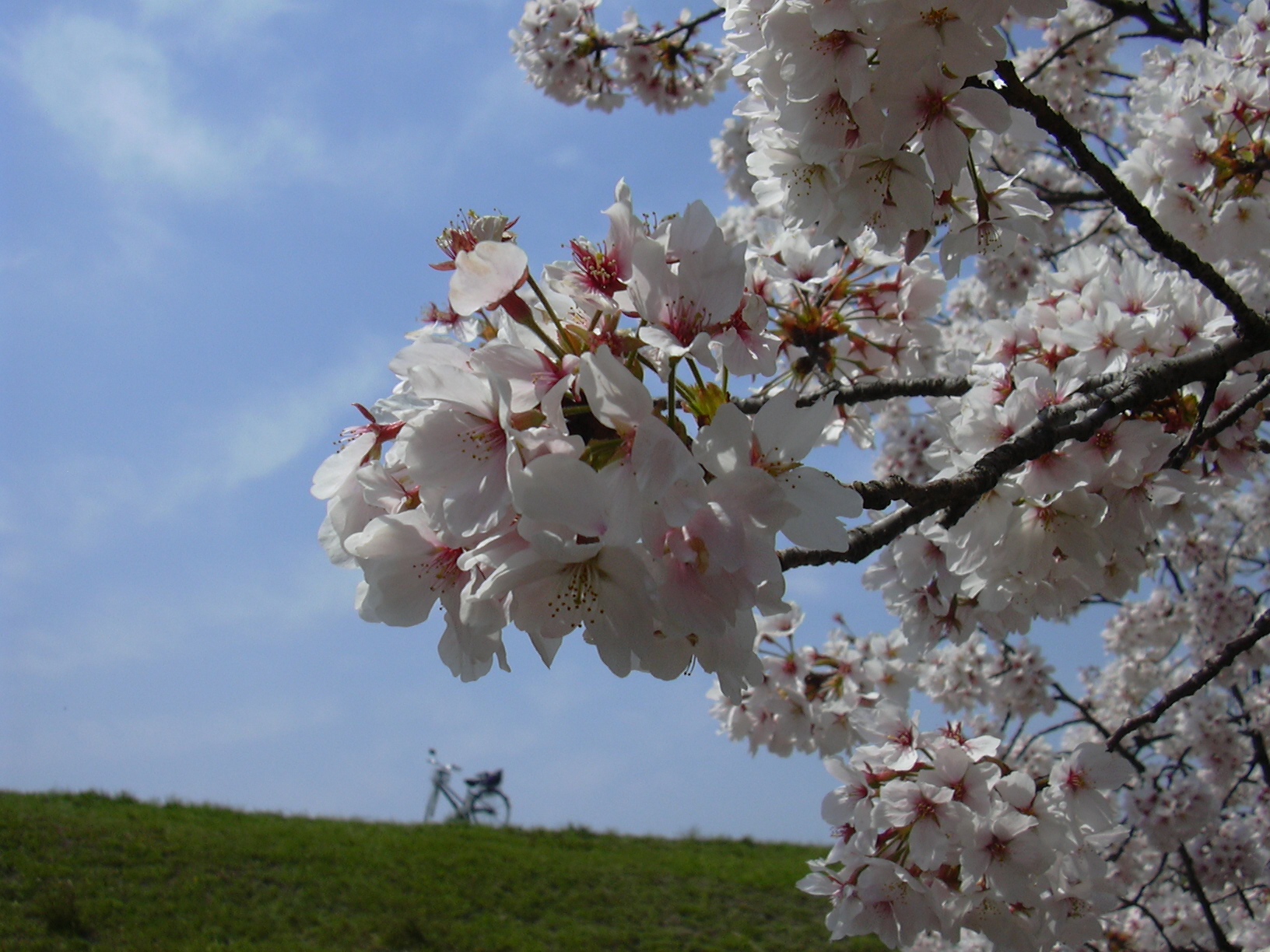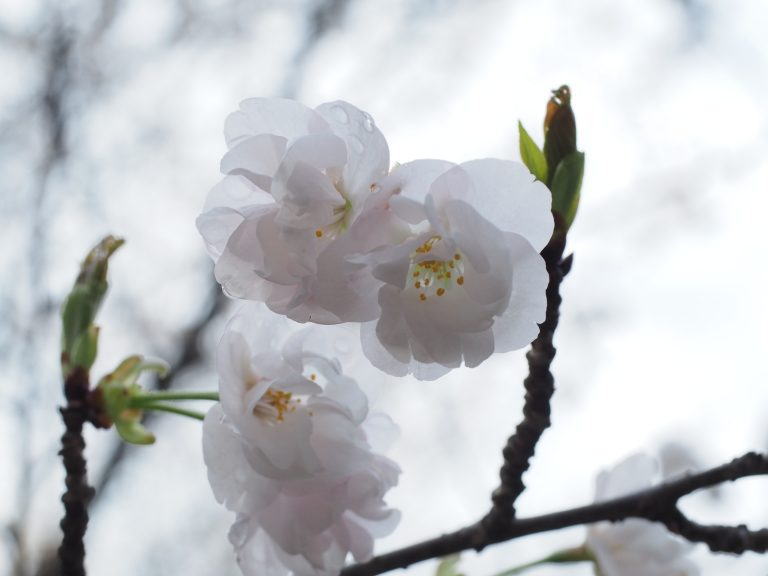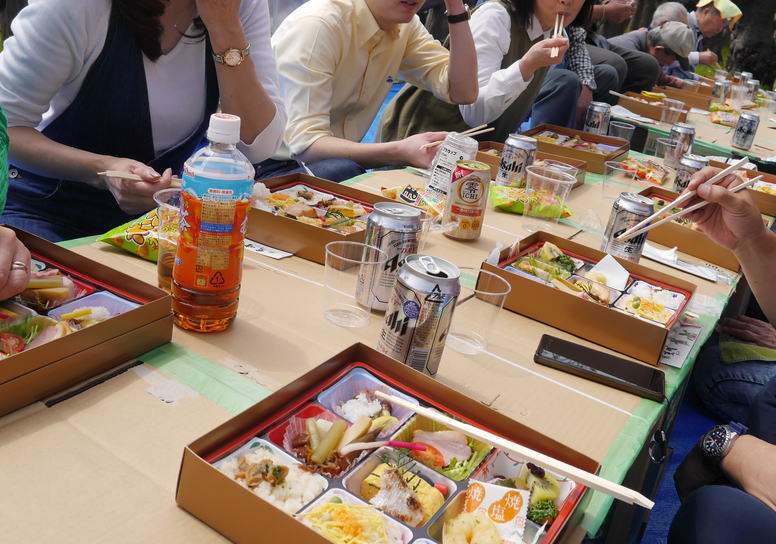 Year after year, there are two things Japanese just can’t do without. Cherry blossoms and red maple leaves viewing. Indeed, they are musts to duly welcome spring and bid farewell to autumn. So obsessed that failing to do so makes them feel “guilty”. Imagine... it’s like you’ve missed a reunion with your dear long-time-no-see friends who could stay only for a short time.
Year after year, there are two things Japanese just can’t do without. Cherry blossoms and red maple leaves viewing. Indeed, they are musts to duly welcome spring and bid farewell to autumn. So obsessed that failing to do so makes them feel “guilty”. Imagine... it’s like you’ve missed a reunion with your dear long-time-no-see friends who could stay only for a short time.
So every year as soon as spring comes, TV weather programs start giving “cherry blooming forecasts”, and people begin chatting like “How are they doing?”, “A bit late this year and still in buds”, or “Now it’s the time!”. Compared with the autumnal counterpart, the cherry blossom is like gold versus silver. Thus a jumble of people — young and old, men and women, retired or non-retired — are back again under cherry trees for Hanami (flower viewing)!
 But why do people adore this flower so much? No wonder it’s a national flower, their admiration for the cherry blossom seems to run deep in Japanese blood. OK. It’s time for some language lesson: the etymology of the word Sakura. There are two versions. One says the word Saku (bloom) combined with the suffix -ra while the other suggests it’s from the meaning “a sacred seat” for the deity of rice, based on the belief fact that the god would descend on a cherry tree. Either way, a good reason to be an important flower.
But why do people adore this flower so much? No wonder it’s a national flower, their admiration for the cherry blossom seems to run deep in Japanese blood. OK. It’s time for some language lesson: the etymology of the word Sakura. There are two versions. One says the word Saku (bloom) combined with the suffix -ra while the other suggests it’s from the meaning “a sacred seat” for the deity of rice, based on the belief fact that the god would descend on a cherry tree. Either way, a good reason to be an important flower.
Then, do people love the flower because it’s important? Unlikely. Anyone knows “love” is not about respecting what’s important (That’s why people necessarily don’t love their bosses, simply because they are important). Love is a sweet feeling to admit your attachment to something or someone. It’s a joy. But seasoned with a possible sorrow. Sorrow that may squeeze your heart when you lose what you love.
Strange it may sound, but Japanese may try to enjoy both joy and sorrow, just as both sides of a coin. Not only because of its beauty but also its short life, people appreciate Sakura. For that brevity of its life, love grows stronger. Contemplating pink petals fluttering away in the breeze, people enjoy the well-tuned blend of happiness and sadness.
 Probably for the same reason, Japanese have gone further than enjoying Hanami, which dates back to the Heian Period (During this period, the word Hana or flower became a synonym of cherry blossoms). Once in wartime, Kamikaze soldiers used to sing a song named "cherry blossoms in the same year" (Dōki No Sakura), in which soldiers are compared as Sakura, ready to fall courageously when its time comes. More recently, telegrams used the phrases Sakura Saku (cherry blossoms bloom) or Sakura Chiru (cherry blossoms fall) to elegantly and stoically inform students of their university admission exam results.
Probably for the same reason, Japanese have gone further than enjoying Hanami, which dates back to the Heian Period (During this period, the word Hana or flower became a synonym of cherry blossoms). Once in wartime, Kamikaze soldiers used to sing a song named "cherry blossoms in the same year" (Dōki No Sakura), in which soldiers are compared as Sakura, ready to fall courageously when its time comes. More recently, telegrams used the phrases Sakura Saku (cherry blossoms bloom) or Sakura Chiru (cherry blossoms fall) to elegantly and stoically inform students of their university admission exam results.
Thus this year too, the season of Sakura has come...

|








